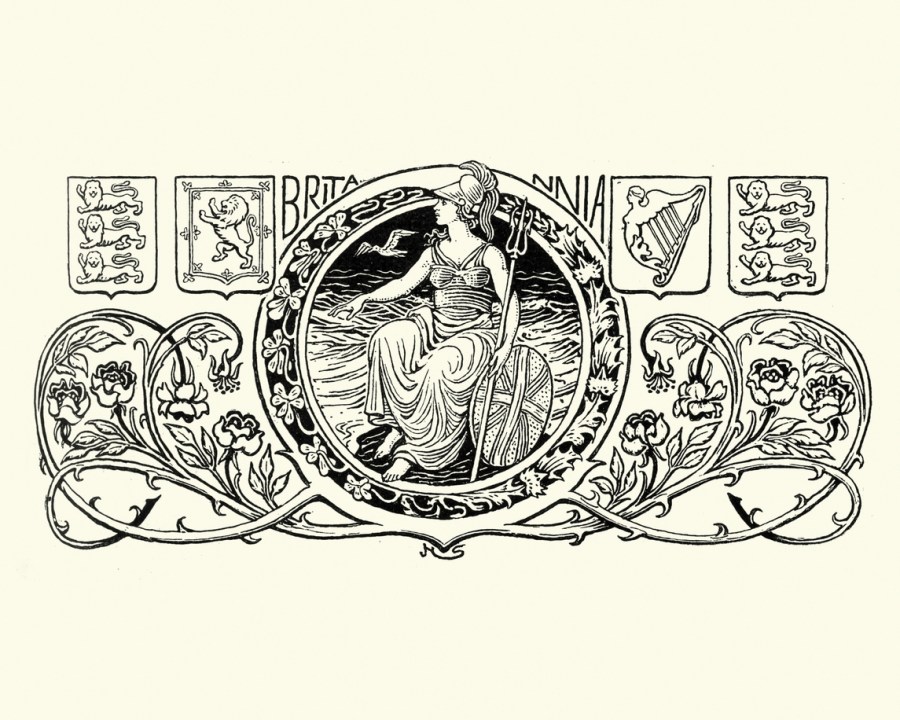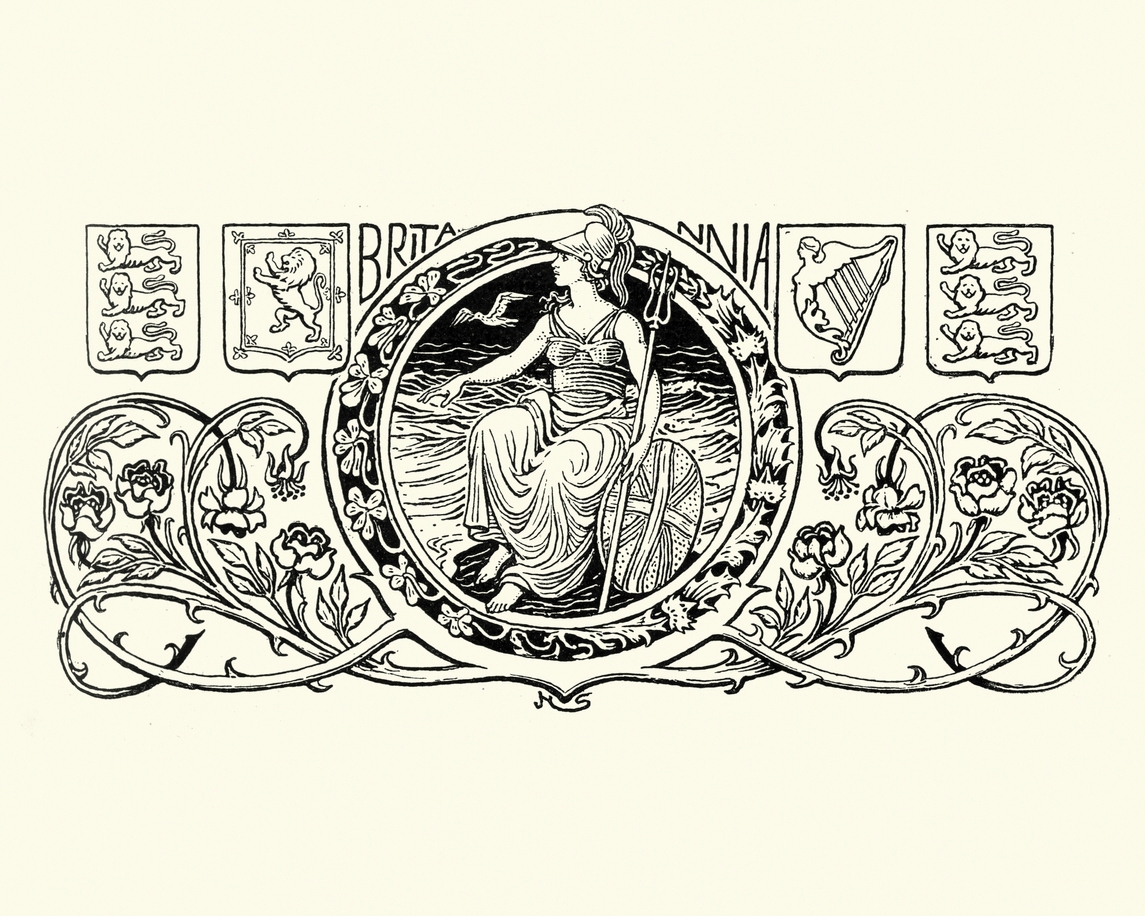Is it my imagination, or are the whitened bones of the British Empire being yet again dug up and trampled underfoot? The latest Labour party manifesto promised ‘an audit of the impact of Britain’s colonial legacy to understand our contribution to the dynamics of violence and insecurity across regions previously under British colonial rule’. The New York Metropolitan Museum of Art is redesigning its British galleries to link every statue and teapot to the Empire ‘with all of its systems of exploitation’. Jesus College Cambridge intends to return a bronze cockerel seized from Benin in a punitive expedition in 1897. Some Cambridge students and academics are pressing to ‘decolonise’ the curriculum, not only in English Literature and History, but in science too, in ‘an acknowledgement,’ says the student newspaper Varsity, ‘of the deep colonial roots of what we now call “science”.’
Recently (just before lockdown) I was invited to take part in a discussion in London on ‘Rethinking the British Empire and its Legacy Today’. The audience was large and interested. I was intending to speak on how present-day political culture is influenced by certain beliefs about Empire. The other panellists, I should explain, were a Guardian contributor, a young academic researcher, an older academic who had campaigned for Labour’s manifesto commitment, and a celebrated conservative writer who proved to be almost equally scathing about the Empire from a Gladstonian perspective. So extreme did I find their remarks that I attempted a brief off-the-cuff correction. What follows is a more elaborate version of those comments.
The view they put forward has become over the last generation an orthodoxy: that the British Empire was a system of racism, slavery and exploitation; that it impoverished its colonies to such an extent that many have never recovered; that Britain’s wealth was founded (some say entirely founded) on these ill-gotten gains. Consequently, we should be ashamed of crimes against humanity that stain our whole history (‘It’s our Holocaust’, as I heard one well-known historian put it).
Why the Empire has again become an issue seems clear. Brexit, and the frequent Remainer jibe that it was motivated by ‘imperial nostalgia’, is one element: if Brexiteers seek to revive a world ‘where faces were white and the map was coloured imperial pink’ then that vision must be trashed. Decolonisation is a weapon against what many see as a reviving British nationalism revolving round the ‘Anglosphere’ and ‘Global Britain’. Moreover, it is a convenient way of combining various ‘intersectional’ grievances and nourishing a sense of victimhood. In short, this is not really a debate about history. Many of the assertions made are historically meaningless and are not made about other empires – the Ottoman, the Mughal, the Chinese. This is politics masquerading as history.
Let me try to sketch what I believe an honest history of the British Empire would say. It has been aptly called ‘a global mosaic of almost ungraspable complexity and staggering contrasts’, so any generalisation is hazardous. Though it was fairly short lived – Clive of India’s pet tortoise outlived the Empire Clive helped create – it took place at a time of profound global change, to which it was a response and without which it could not have existed.
One can blame everything on the Empire as long as one forgets everything else
Older empires in Asia, Africa, and the Middle East were crumbling, and the resulting power vacuum led to territorial conflicts and expansion by rising European, Asian and African states. It was a time of exploding population growth and uncontrollable mass migration. And of course it was a time of technological and economic revolution, in which Britain was a leader, and which led to the first age of globalisation. The British Empire was a response to this anarchic situation. No British government pursued all-out expansion: some countries asked to join the Empire and were turned down. It grew by persistent and usually reluctant mission-creep – what the historian John Robert Seeley famously called ‘a fit of absence of mind’.
The Empire was not a massive power structure. As one official put it in the 1920s, it was ‘a brontosaurus with huge vulnerable limbs which the central nervous system had little capacity to protect, direct or control.’ Under Queen Victoria the Indian Civil Service numbered only 2,000, and Uganda had just 25 British officials. It only functioned because most of its subject peoples were willing, and sometimes eager, to acquiesce in a system that offered (though could not always deliver) peace, order and access to trade.
The great imperial cities – Calcutta, Bombay, Singapore, Hong Kong, Sydney, Melbourne, Cape Town and so on – were built by the economic dynamism of their citizens, not by imperial fiat. The Empire was a joint creation of rulers and ruled, which gave it unusual legitimacy in the eyes of its subjects, millions of whom fought for it.
If the Empire was a system of exploitation, it was a very inept one. The British paid far more in tax than their European counterparts, much of it for imperial defence, while subjects of the Empire paid less tax than people outside it. Their defence, communications and trading systems were underwritten by Britain, which provided a large and open market for their exports. This first age of globalisation, like that of the twentieth century, had winners and losers, but to condemn it as wholly negative and exploitative is an ideological, not a historical, judgement – much like the claim that free trade was a ‘mask’ for ‘holocaust’ and ‘colonial genocide’. Whether Britain benefitted economically from having an empire is doubtful.
Accusers rarely discuss such complex themes, which do not lend themselves to rhetorical dramatisation. So what about the precise accusations? Perhaps the most emotive concerns slavery. During the 18th century, the peak of the huge and lucrative Atlantic slave trade, British merchants bought slaves from African rulers – on average, 120 people every day by the 1780s – and sold them primarily to French, Portuguese-Brazilian and British planters. Was this the source of Britain’s wealth, and the fuel of the Industrial Revolution? Profit from the slave trade made individuals rich, but accounted for about one per cent of national income. The Industrial Revolution’s key element was coal, of which Britain had a lot.
Where the British Empire’s relationship with slavery was unique was in combatting it. Britain abolished its own slave trade in 1807. In 1834 it abolished slavery throughout the Empire. British subjects were forbidden to own slaves anywhere in the world.
It also made strenuous international efforts. It inserted into the 1815 Treaty of Vienna a commitment to end the trade – the first human rights article in any treaty. The Royal Navy mounted permanent anti-slavery patrols, mainly off West Africa – where it freed 160,000 captives, including the boy who became the first African Anglican bishop – and also in the Caribbean, Indian Ocean and Pacific as late as the 1880s. Diplomatic pressure, bribery and even force were used against African, American and European governments. In the second half of the century, Britain made a similar effort to stop the huge slave trade from Africa to the Muslim world, involving millions of victims. Imperial rule in Africa was linked with the anti-slavery policy, the need to defend coastal settlements from slave raiders, and to protect legitimate trade (for example in palm oil) that was supposed to provide an alternative to slaving for African rulers reluctant to lose income.
This is the general context of the expedition to Benin in 1897: I wonder whether Jesus College has ever considered whether it might be handing back an anti-slavery trophy to the descendants of the slavers. Colonial rule also slowly weakened indigenous slavery, permitting self-liberation and undermining oppressive generational and gender hierarchies. We should be sceptical of elite nationalist narratives that present colonial rule as unbounded oppression. For many it meant emancipation and opportunity.
What of India, ‘the jewel in the Crown’ (no jewel, said Disraeli, was so costly)? Was it permanently impoverished by imperial exploitation? In the 18th century, the East India Company was undoubtedly corrupt and rapacious. In the middle decades of the 19th, India lost its huge export markets for textiles as machine-made Lancashire cotton undercut its hand-woven products.
But there is a sequel. Mechanised cotton mills began to be built in the 1850s, and by 1876 India reached the ‘one million spindle mark’ – twenty years before Japan. Indian industrial dynasties emerged: J. N. Tata visited Lancashire in 1872 and then opened modern cotton mills at home; his son, Sir Dorabji Tata, built a huge steelworks. By 1900 India had the fourth largest textile industry in the world, after Britain, the USA and Russia. It also had the fourth largest railway system in the world (paid for by Indians but with British technical direction and aided by cheap British capital) with three-quarters of Asia’s total track – 35 times more than independent China.
India’s agricultural export growth was comparable to Brazil’s, and its industrial growth comparable with Germany’s. Indian manufacturers competed successfully with British imports, aided by the imperial government giving preference to Indian-produced goods. Indian taxes were 20 to 40 per cent lower than in the non-European world in general, and lower in British India than in the semi-autonomous princely states.
And Africa? The Colonial Development and Welfare Act (passed during the dark days of 1940) founded ‘welfare colonialism’ – the conscious equivalent of the ‘welfare state’ under the post-war Labour government, with new money for education, infrastructure and health and veterinary services, leading to a rise in female literacy and agricultural improvements that today’s aid budgets would do well to equal. But that history has been effaced.
I could go on. One can blame everything on the Empire as long as one forgets everything else. There was indeed violence, harshness and disastrous error, recorded in British official documents which, notes one historian, give more detail of policy failings than one would get from United Nations reports today – or from the independent governments of some former colonies. But for many violent and disturbed parts of the globe, the British Empire managed to stop endemic warfare, bring relative peace and order, and in some regions create substantial economic development. Would the world have been better or worse without the Empire? Who can say?
Britain today is affected by its imperial history, perhaps most obviously because many of us are ‘children of Empire’, the descendants of families from former colonies, some of whom moved round the Empire in search of opportunity. I remember after speaking at a school being approached by a sixth former of East-African Asian descent who told me she did not feel that her family fitted into British history. But, as I said to her, they are part of that history: she and her family saga embody one of its great themes.
We should not accept the caricature which portrays us as living shamefully amid the ruins of a decadent evil empire. It seeks to demoralise and divide us, and displays a haughty contempt for the lives of those thus misrepresented.








Comments